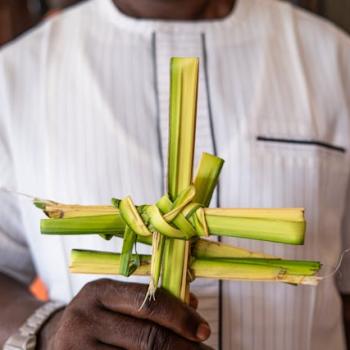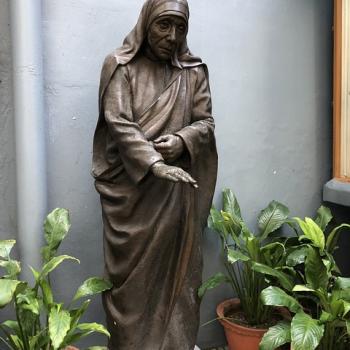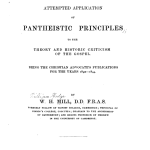We live in a world that cannot bear the reality of reality. The cross itself indicates to us the delicate ballance of truth, that our lives are not merely horizontal or vertical, but always both and. We are a sinful, suffering, fallen people, who are also beloved of God. One does not negate the other, we remain the prodigal son and the older brother, both puzzled to no end by the infinite generous love of the father, knowing that the other is not deserving, and that God deserved better than we give.

God is love. Love is generous and sacrificial and merciful. Our God is also justice and the fulfillment of all, and thus rightly to be honored, praised and worshiped always. We often want to skip the praise and thanksgiving part of prayer and get right to the, “Lord, I need.” Which is why Jesus makes sure we know, that praise comes first, and that need, while important, is in the midst of all our prayer, not the center, not the start, and not the close. It is a part, but not the whole of worship and prayer.
Modern sensibilities struggle with the reality of the cross, with the idea of the person who sins in a way we can recognize, being someone God offers forgiveness to, and just as mightily with the notion that we are the ones carrying those sins. Visiting my nieces over the weekend, one talked with great understanding about our first parents sewing fig leaves which would have been itchy at best, that the fruit from the tree of knowledge might have been a fig. It would make sense, since Jesus later curses the fig tree for failing to yeild fruit, and that our first parents, once they sinned, clothed themselves in the aftermath of their sins.

In creative writing, I’d been teaching that generic nouns tell the reader nothing, and so if one says they ate a fruit, we should specify the fruit, and paint the picture for the reader of the reality. The reality of our sins, hiding our innate dignity, and our selves from God, is like Adam and Eve wearing fig leaves to cover themselves. It does a poor job, it fails utterly, but it also reveals to us if we allow, the necessity of God’s forgiveness, and of our inability to escape the consequences of sin except through the gifts of grace of God.
So I sat there pondering all this in my heart, wondering how I could convey the true nature of our being with words. The great sinner offered forgiveness, freedom, and absolution, and the presumptious soul that thinks it understands who deserves and does not deserve mercy. I thought of the communion line, and being offered the opportunity to cradle Jesus in my hands, and that none of us are worthy of such an opportunity, even if we’ve been to confession and been absolved, we are still unworthy to hold Christ and yet He allows it. He welcomes it.
If we would understand Christ’s love, we need only look at the true reality of His being, offering Himself to be crucified, offering Himself to be consumed. It’s far more than we figleaf wearers deserve or could ever merit, and yet it is there. Thank God.













